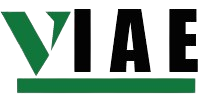Course Title: Web Development
Module 1: Introduction to Web Development
Unit 1: Overview of Web Development
- Overview of Web Development Ecosystem
- Definition and Importance of Web Development
- Evolution of Web Technologies
- Key Roles in Web Development
- Setting up as a Web Developer
Unit 2: Basics of HTML
- Fundamentals of HTML
- Structure and Syntax of HTML
- HTML Elements and Attributes
- Creating Forms and Input Validation
Unit 3: Introduction to CSS
- Fundamentals of CSS
- Styling HTML Elements with CSS
- CSS Selectors and Box Model
- CSS Flexbox and Grid for Modern Layout
- Responsive Web Design Principles
Module 2: Frontend Development
Unit 1: Introduction to JavaScript
- Basics of JavaScript Programming
- Variables, Data Types, and Operators
- Control Flow and Functions in JavaScript
Unit 2: Document Object Model (DOM)
- Manipulating HTML with JavaScript
- Event Handling and DOM Events
- Dynamic Content Update with JavaScript
Unit 3: Frontend Frameworks
- Overview of Frontend Frameworks (React, Angular, and Vue)
- Building Single Page Applications (SPAs)
- Component-Based Architecture in Frontend Development
Module 3: Backend Development
Unit 1: Server-side Programming
- Introduction to Server-side Programming
- Backend Languages (Node.js, Python, Ruby)
- Building Server-side APIs
Unit 2: Database Management and Integration
- Basics of Databases (SQL and NoSQL)
- Connecting Backend to Databases
- CRUD Operations and Database Security
Unit 3: RESTful API Development
- Principles of RESTful APIs
- Creating RESTful Endpoints
- Authentication and Authorization in APIs
Module 4: Web Development Tools
Unit 1: Version Control with Git
- Introduction to Version Control
- Git Basics and Workflow
- Collaborative Development with GitHub
Unit 2: Package Managers and Task Runners
Using npm (Node Package Manager)
Task Automation with Gulp or Webpack
Dependency Management in Web Development
Unit 3: Web Development Environments
- Local Development Setup
- Development and Production Environments
- Deployment Strategies for Web Applications,
Module 5: Web Security
Unit 1: Common Web Security Threats
Cross-Site Scripting (XSS) and Cross-Site Request Forgery (CSRF)
SQL Injection and Security Best Practices
HTTPS and Data Encryption
Unit 2: Web Application Security Practices
- Secure Coding guidelines
- User Authentication and Authorization
- Security Auditing and Testing Tools
Unit 3: Web Accessibility
- Importance of Web Accessibility
- Creating Accessible Web Content
- Testing and Ensuring Web Accessibility
Module 6: Advanced Web Development Topics
Unit 1: Progressive Web Apps (PWAs)
- Introduction to PWAs
- Building Offline-First Applications
- Service Workers and App Manifests
Unit 2: Web Performance Optimization
- Understanding Web Performance Metrics
- Techniques for Page Load Optimization
- Caching and Minification Strategies
Unit 3: Emerging Trends in Web Development
- Introduction to WebAssembly
- integrating WebRTC for Real-Time Communication
- Exploring the Metaverse and Web 3.0 Concepts
Module 7: Project Work
Unit 1: Planning and Designing a Web Project
- Defining Project Requirements
- Wireframing and Prototyping
- User Experience (UX) Design Principles
Unit 2: Implementation of Web Project
- Hands-on Development of a Web Application
- Integrating Frontend and Backend
- Testing and Debugging
Unit 3: Project Deployment and Showcase
- Deployment Strategies for Web Applications
- Showcasing the Developed Web Project
- Collecting and Incorporating Feedback
Module 8: Career and Further Learning
Unit 1: Career Paths in Web Development
- Job Roles in Web Development
- Building a Portfolio
- Interview Preparation Tips
Unit 2: Continuing Education in Web Development
- Advanced Specializations and Certifications
- Online Communities and Networking
- Staying Updated with Industry Trends
Outcomes: What You Become After Studying Web Development
-
Front-End Developer:
- You’ll be skilled in creating and implementing the visual elements of websites, focusing on user interfaces and user experiences using HTML, CSS, and JavaScript.
-
Back-End Developer:
- You’ll understand how to build and maintain the server-side logic, databases, and application integration, working with languages like Python, Ruby, PHP, or Node.js.
-
Full-Stack Developer:
- You’ll be proficient in both front-end and back-end development, capable of handling the entire web development process from server-side logic to client-side design.
-
Web Designer:
- You’ll be capable of designing visually appealing and user-friendly websites, including layout design, typography, and color schemes.
-
Web Application Developer:
- You’ll have the skills to build dynamic web applications that provide complex functionality and user interactions.
-
UX/UI Designer:
- You’ll understand how to enhance user experience (UX) and user interface (UI) design, ensuring that websites are both functional and engaging.
-
Web Developer Operations Specialist:
- You’ll be proficient in deploying and maintaining web applications, including handling server configuration, security, and performance optimization.
-
E-commerce Developer:
- You’ll be skilled in building and managing online stores, including product management, payment processing, and user experience for e-commerce sites.
-
Content Management System (CMS) Specialist:
- You’ll understand how to implement and customize CMS platforms like WordPress, Joomla, or Drupal to manage website content effectively.
-
SEO Specialist:
- You’ll be adept at optimizing websites for search engines, improving visibility, and driving traffic through effective SEO strategies.
Certifications in Web Development
-
Certified Web Developer (CWDS):
- Demonstrates comprehensive skills in web development, covering both front-end and back-end technologies.
-
Microsoft Certified: Azure Developer Associate:
- Validates skills in developing cloud-based applications and services on Microsoft Azure, including web application development.
-
Google Developers Certification – Mobile Web Specialist:
- Focuses on building mobile-friendly web applications, covering responsive design, performance, and mobile-specific considerations.
-
FreeCodeCamp Certification:
- Offers various certifications in web development topics, including Responsive Web Design, JavaScript Algorithms and Data Structures, and Front End Libraries.
-
W3Schools Web Development Certifications:
- Provides certifications in different aspects of web development, including HTML, CSS, JavaScript, and SQL.

